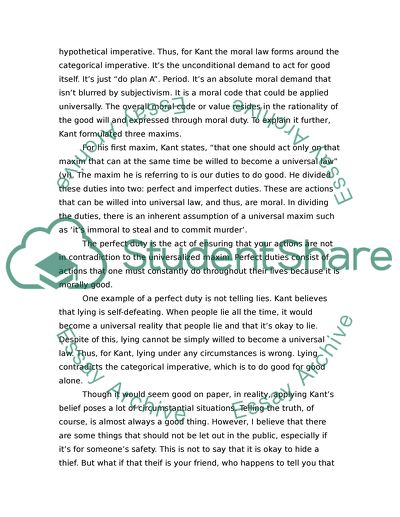Cite this document
(“Morality and ethics by Kant Essay Example | Topics and Well Written Essays - 1000 words”, n.d.)
Retrieved from https://studentshare.org/philosophy/1558430-morality-and-ethics-by-kant
Retrieved from https://studentshare.org/philosophy/1558430-morality-and-ethics-by-kant
(Morality and Ethics by Kant Essay Example | Topics and Well Written Essays - 1000 Words)
https://studentshare.org/philosophy/1558430-morality-and-ethics-by-kant.
https://studentshare.org/philosophy/1558430-morality-and-ethics-by-kant.
“Morality and Ethics by Kant Essay Example | Topics and Well Written Essays - 1000 Words”, n.d. https://studentshare.org/philosophy/1558430-morality-and-ethics-by-kant.


